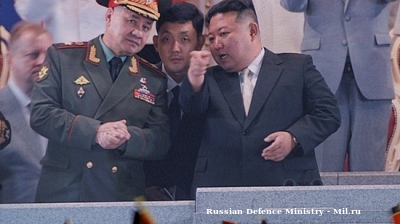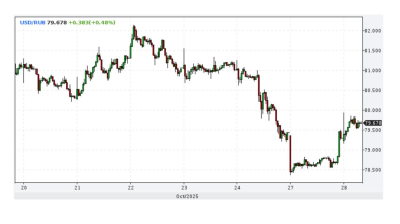Russian President Vladimir Putin has formally withdrawn from a key arms control agreement with the United States governing the disposal of weapons-grade plutonium, as the few remaining nuclear security accords between the two powers continue to vanish.
Russia is now no longer bound by the Plutonium Management and Disposition Agreement, which was signed in 2000 and committed both countries to eliminate 34 tonnes of surplus plutonium — enough to produce thousands of nuclear warheads, according to an official decree published on October 27.
The move comes nearly a decade after Russia first suspended its participation in the pact in 2016, accusing the United States of failing to meet its commitments. At the time, Putin linked the suspension to “the emergence of a threat to strategic stability as a result of unfriendly actions by the U.S.,” and called for the removal of sanctions imposed following Russia’s 2014 annexation of Crimea.
Cold War-era missile agreements were back on the agenda in August and could have provided badly needed peace deal negotiation middle ground. US President Donald Trump said early in his presidency that he wanted to do deals with China and Russia to reduce the number of nuclear missiles. At the same time, the Kremlin has indicated that it is also keen to restart the Cold War missile control agreements.
Russian President Vladimir Putin signed off on a renewal of the START missile treaty in January 2021 with former US President Joe Biden in his first week in office – the first Cold War deal to be renewed. The Kremlin leapt at the deal and immediately proposed starting talks on reviving the expired Intermediate-Range Nuclear Forces Treaty (INS Treaty) in 2019 under former president Donald Trump, but negotiations never started as relations started to rapidly decay in the run up to the Ukrainian invasion the following year.
Putin later suspended the deal at the end of 2022. He then withdrew from the Conventional Armed Forces in Europe deal in May 2023 – another key Cold War security deal. The START agreement needs to be renewed again in February next year, but both sides continue to blow hot and cold on if a new deal can be struck.
That is looking less likely now as relations between the two countries took a nosedive in the last week when Trump appeared to give up on negotiations with Putin and imposed oil sanctions on Russia’s two biggest oil companies.
In response to Trump’s threat to send Ukraine Tomahawk missiles, rather than scaling down Russia’s nuclear threat, Putin has scaled it up. He revealed tests of Russia’s new Burevestnik nuclear-capable cruise missile a few days later on October 26, in what analysts say is a symbolic move to increase pressure on the White House.
Putin continues to play the nuclear card regularly. He revised and loosened Russia’s nuclear doctrine, changing the terms under which Russia can launch a first strike nuclear attack. He has showcased the Oreshnik nuclear-capable cruise missile that can hit any city in Europe, as well moving some of them to storage facilities in Belarus in 2023.
The Russian parliament passed a bill formally denouncing the plutonium agreement earlier in October, clearing the way for Putin’s approval. The 2000 agreement was hailed as a critical step in post-Cold War nuclear non-proliferation. It aimed to reduce the risk of plutonium falling into the hands of rogue states or non-state actors by converting the material into MOX (mixed oxide) fuel for use in civilian nuclear power plants. Russia ratified the deal in 2011, with implementation originally scheduled to begin in 2018, but progress on both sides slowed amid deteriorating bilateral relations.
Analysts warn that the collapse of the agreement reflects the broader breakdown of arms control frameworks between Moscow and Washington, as both sides continue to modernise their nuclear arsenals.
News
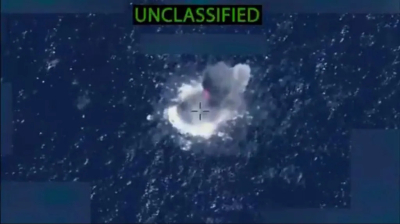
US strikes on drug vessels kill 14 in deadliest day of Trump's narcotics campaign
The US military killed 14 people in strikes on four vessels allegedly transporting narcotics in the eastern Pacific Ocean, marking the deadliest single day since President Donald Trump began his controversial campaign against drug trafficking.
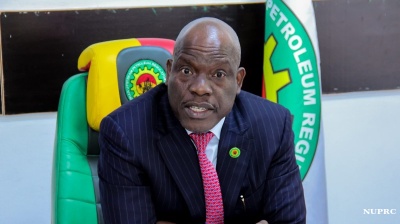
Nigeria’s NUPRC holds exploratory talks with Bank of America on upstream financing
Nigeria's upstream regulator, NUPRC, has held exploratory talks with Bank of America as the country looks to attract new capital and revive crude output, after falling short of its OPEC+ quota.
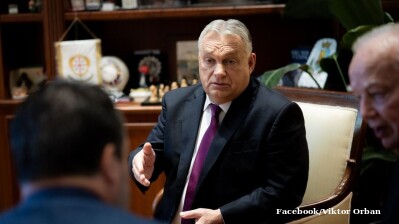
European diplomacy should have stopped war, Orban tells Italian broadcaster
The job of European diplomacy would have been stopping the war in Ukraine, but Brussels has become "irrelevant" by deciding not to negotiate, Prime Minister Viktor Orban told an Italian TV channel on October 28.

Zelenskiy allows the start of controlled arms exports
President Volodymyr Zelenskiy ordered Ukraine’s Ministry of Defence to begin the controlled export of domestically produced weapons starting in November for the first time in the hope of boosting production and attracting investment.
